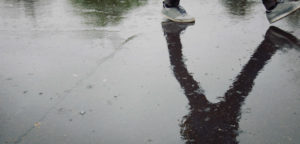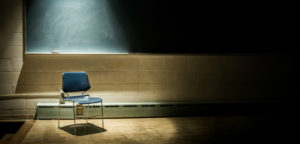
Education: Like a Drizzle or a Downpour?
“Storms come and go fast. When the downpour reaches the ground, the water runs away quickly—little gets into the ground. Drizzle offers a different image—fine, slow, silent, and yet penetrating. Drizzle soaks into the ground. The Chinese have a saying: ‘Real education is like the












